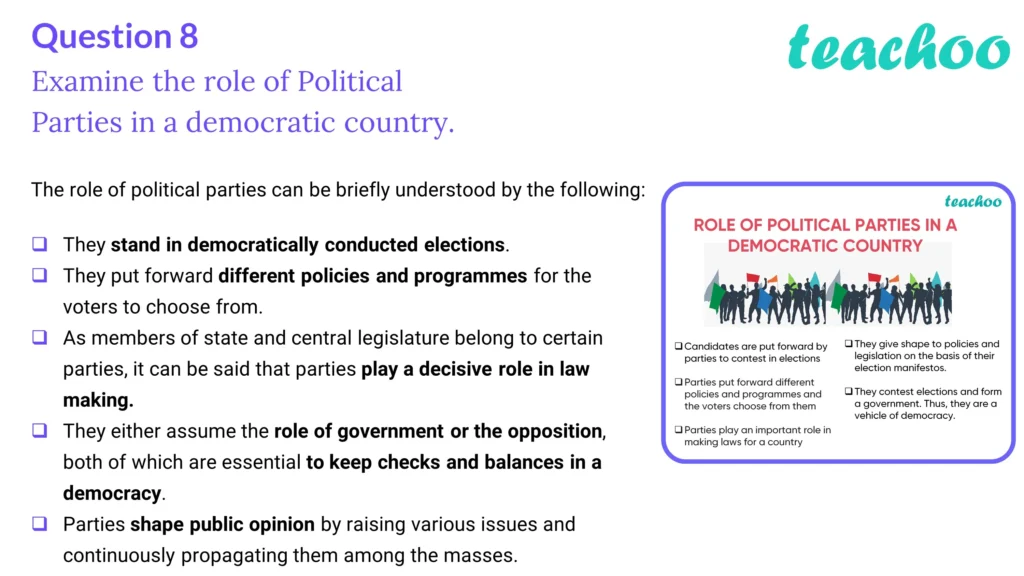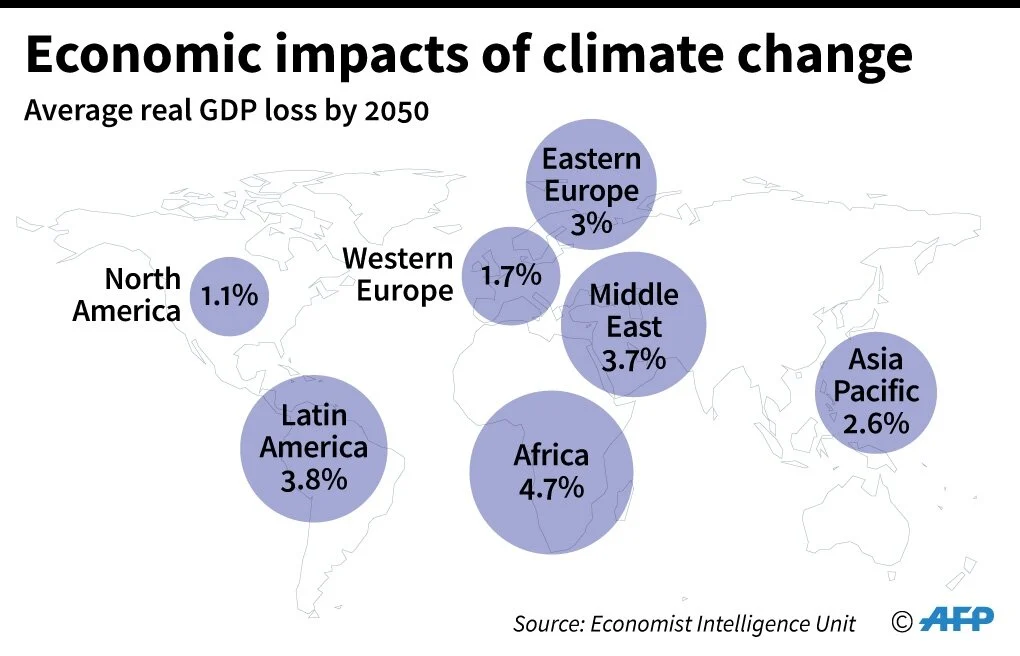The role of political parties in democratic systems is crucial for the functioning of the political process. Political parties play a key role in representing the interests and views of the citizens, shaping public policies, and providing a platform for political participation. They also serve as a mechanism for organizing and mobilizing the electorate, as well as for holding the government accountable. In addition, political parties play a significant role in the recruitment and training of political leaders and in the process of political socialization.
In democratic systems, political parties are essential for the organization of political competition and the representation of diverse societal interests. They play a pivotal role in shaping the political agenda, mobilizing voters, and providing a platform for public debate and policy development. Furthermore, political parties serve as a link between the government and the citizens, as well as a mechanism for fostering political participation and civic engagement. Their role in promoting democratic values and ensuring the accountability of the government is also significant.
The Role of Political Parties in Democratic Systems
Political parties play a crucial role in democratic systems by representing the diverse interests and opinions of the population. They serve as a bridge between the government and the people, articulating and advocating for the needs and concerns of different segments of society. Through their platforms and policies, political parties offer voters a choice and a voice in the decision-making process, thereby contributing to the functioning of a pluralistic and inclusive democracy.
Furthermore, political parties help to organize and structure the political landscape, providing a framework for political debate, policy formulation, and the peaceful transfer of power. They serve as vehicles for political participation and mobilization, offering individuals a means to engage in the political process, express their beliefs, and work towards common goals. In this way, political parties contribute to the stability and legitimacy of democratic governance.
Representation and Advocacy
Political parties represent a wide range of interests and ideologies within society, giving voice to different perspectives and concerns. They articulate the needs of various social, economic, and cultural groups, and develop policies and agendas to address these issues. Through their advocacy efforts, political parties seek to influence public opinion, shape government policies, and bring about societal change in line with their vision and values.
By offering a platform for representation and advocacy, political parties enable citizens to support and align themselves with the issues and causes that matter to them. This not only fosters a sense of belonging and participation in the democratic process but also ensures that a diverse range of voices is heard and considered in the formulation of public policies.
Policy Formulation and Implementation
One of the primary functions of political parties is to develop and promote policy proposals that reflect their vision for the country or community. Through their affiliated elected officials and representatives, political parties play a key role in shaping the legislative agenda, debating proposed laws, and ultimately enacting new policies. This process of policy formulation and implementation is essential for addressing societal challenges and advancing the common good.
Moreover, political parties provide a mechanism for coordinating and implementing their policy objectives within the government. As they compete for control of executive and legislative branches, political parties offer voters a choice in the direction and priorities of public policy. This competition fosters accountability and responsiveness among elected officials, as they are held responsible for fulfilling their party’s promises and commitments to the electorate.
Political Mobilization and Engagement
Political parties serve as a vehicle for mobilizing and engaging citizens in the democratic process. They recruit, train, and support candidates for public office, as well as campaign for their election. By doing so, political parties encourage individuals to become politically active, volunteer for campaigns, and participate in electoral activities such as voting and canvassing.
Furthermore, political parties often organize and support grassroots movements, demonstrations, and advocacy efforts to raise awareness about specific issues and influence public opinion. Through these mobilization efforts, political parties play a vital role in energizing and mobilizing the electorate, thereby strengthening the democratic process and fostering civic engagement.
Building Consensus and Compromise
In a democratic system, political parties play a crucial role in building consensus and facilitating compromise among different groups and interests. By bringing together individuals with diverse perspectives and priorities, political parties provide a forum for dialogue and negotiation, ultimately seeking common ground and solutions to societal challenges.
Through the process of coalition-building and cooperation, political parties help to bridge divides and prevent the marginalization of minority viewpoints. This collaborative approach to governance is essential for promoting stability, inclusivity, and the peaceful resolution of conflicts within a democratic society.
Challenges and Criticisms
Despite their important role in democratic systems, political parties are often subject to criticism and face various challenges. One common criticism is that political parties may become disconnected from the needs and concerns of the population, prioritizing their own interests and power struggles over the public good. This can lead to a lack of trust in political institutions and a sense of alienation among citizens.
Additionally, the influence of money, special interests, and partisan polarization can undermine the effectiveness and credibility of political parties, hindering their ability to represent the broader public interest and work towards constructive solutions. Overcoming these challenges requires ongoing reform efforts and a commitment to transparency, accountability, and ethical leadership within political parties.
Role in Political Education and Awareness
Political parties play a crucial role in educating and raising awareness among the public about political issues, government processes, and the importance of civic participation. Through their outreach efforts, parties seek to inform and engage citizens, encouraging them to become informed voters, active community members, and potential candidates for public office.
Furthermore, political parties contribute to political education by providing platforms for public debate, hosting town hall meetings, and disseminating information about their policy proposals and positions. By fostering a more politically informed and engaged citizenry, political parties help to strengthen the foundations of democracy and ensure the active participation of the population in shaping the future of their society.
International Perspectives and Cooperation
Political parties also play a role in international affairs by representing their country’s interests, promoting diplomatic relations, and engaging in multilateral cooperation. Through their affiliations with international political organizations and networks, parties contribute to global dialogue, exchange of ideas, and collaboration on transnational issues such as human rights, security, and economic development.
Moreover, political parties can serve as advocates for democratic principles and good governance on the international stage, working to strengthen democratic institutions, promote free and fair elections, and support democratic movements in other countries. By engaging in international perspectives and cooperation, political parties contribute to the advancement of democratic values and the peaceful resolution of global challenges.
The Role Of Political Parties In Democratic Systems
| Role | Description |
|---|---|
| Representation | Political parties represent the interests and views of different groups within society, providing a voice for citizens in the decision-making process. |
| Policymaking | Parties develop and propose policies, offering voters a choice of different approaches to governing and addressing societal issues. |
| Mobilization | Parties mobilize voters and encourage political participation, helping to ensure a well-informed and engaged citizenry. |
| Accountability | Parties hold elected officials accountable for their actions and decisions, serving as a check on the government’s power. |
| Competition | Healthy competition between parties fosters political debate and encourages the development of diverse ideas and solutions. |



